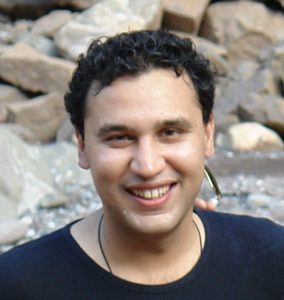
Meet Ali Raza Khan, Ashoka Fellow, as well as Founder and CEO of YES Network Pakistan, a social enterprise that nurtures the entrepreneurial spirit in children and youth through various initiatives. Intrigued by Ali’s vision to promote “youth as a solution” rather than a problem, CHRISTIAN PETROSKE catches up with Ali to find out more about his outlook and his grand youth empowerment plans.
What do you wish you could say to your younger self?
I would say that everything is possible, honestly. I have a dream now, which is to go back and restart my life at the age of 10. I was 18 when I started [being a] changemaker, but I think I could’ve started earlier, so I might encourage my 10-year-old self to become a changemaker. We live in a different world today where we have different tools available to us. If we use these tools intelligently, we can bring a lot of change, and very quickly.
What is it about youth that makes you feel connected to their cause?
Young people are passing through an exciting age, where they are readily inspired and eager for change. For example, when they see other people doing something which has value, it spurs them on. Unfortunately, however, their desire for effecting positive social change is often met with scepticism from society, and I feel that we need to give the youth more licence to venture into new areas with their ideas.
In Pakistan, I’ve seen that once young people get involved in changemaking, and people see the positive difference they make in their communities, this inspires many others to do the same. In the beginning, they might doubt their own abilities to make a real change, but the team at YES Network Pakistan would tell them, “It’s not about education, skills, or resources—it’s belief in yourself.” And freeing oneself from limiting behaviours takes practice. If you just provide young people with an environment in which they can practise venturing outside their comfort zones, you will see that even someone who had no self-belief in the beginning can rewrite his or her entire belief system in the process of becoming a changemaker.
What is the biggest misconception people have about youth?
Most of the time, I see people designing and implementing programmes from the view that young people are a problem. I think that perceiving youth as a problem is a big, big mistake, and we should instead see them as part of the solution. And in my work, I’m trying to prove that we must not treat young people as empty vessels into which we pour our wisdom, buy as the most promising resource to bring about change in society.
What are common obstacles faced by youth in achieving their goals?
In my experience, I’ve found youth generally underestimate themselves too much. It really pains me when I see that a young person who has everything he [needs] to be successful, but because of his negative perceptions of himself, does not realise his potential. I see young people who work 16-hour days and still living in poverty because that is the level of success they think they deserve. The greatest “folly of youth” is to not believe in oneself. Therefore, I deeply desire to replace their negative self-belief systems and empower youth with the knowledge that are fully capable of accomplishing anything for themselves, their families and society.
Who is your social change icon or inspiration?
To start with, my mother has been my major inspiration. 40 years ago, she set up a school for underprivileged children, and had a hard time winning the support of everyone in the family, especially my grandfather. However, with patience and determination, they finally came around to the idea, and my grandfather even became her teaching assistant! My mother’s experience showed me that if you really have the will and courage to do something, your actions will speak louder than words, and ultimately win people over to your cause.
If you had one superpower, how would you use it to help youth?
If I had one superpower, I would try to instil a very positive and strong belief system among all young people of the world, to empower them with the knowledge that they can do anything they set their mind to doing.
If anyone wanted to help youth, where would be the best place to start?
Your own neighbourhood. Most of the time, we try to reach out to those communities that are very far from us. It’s much easier to experiment at a place you’re familiar with, and where you know people. Once you see the impact of your work, then you can think about scaling up or moving farther.
Fill in the blank. With great youth empowerment comes great ________?
Hope. Or Possibilities.
Christian Petroske was formerly an Assistant Manager at the Lien Centre for Social Innovation.








Comments